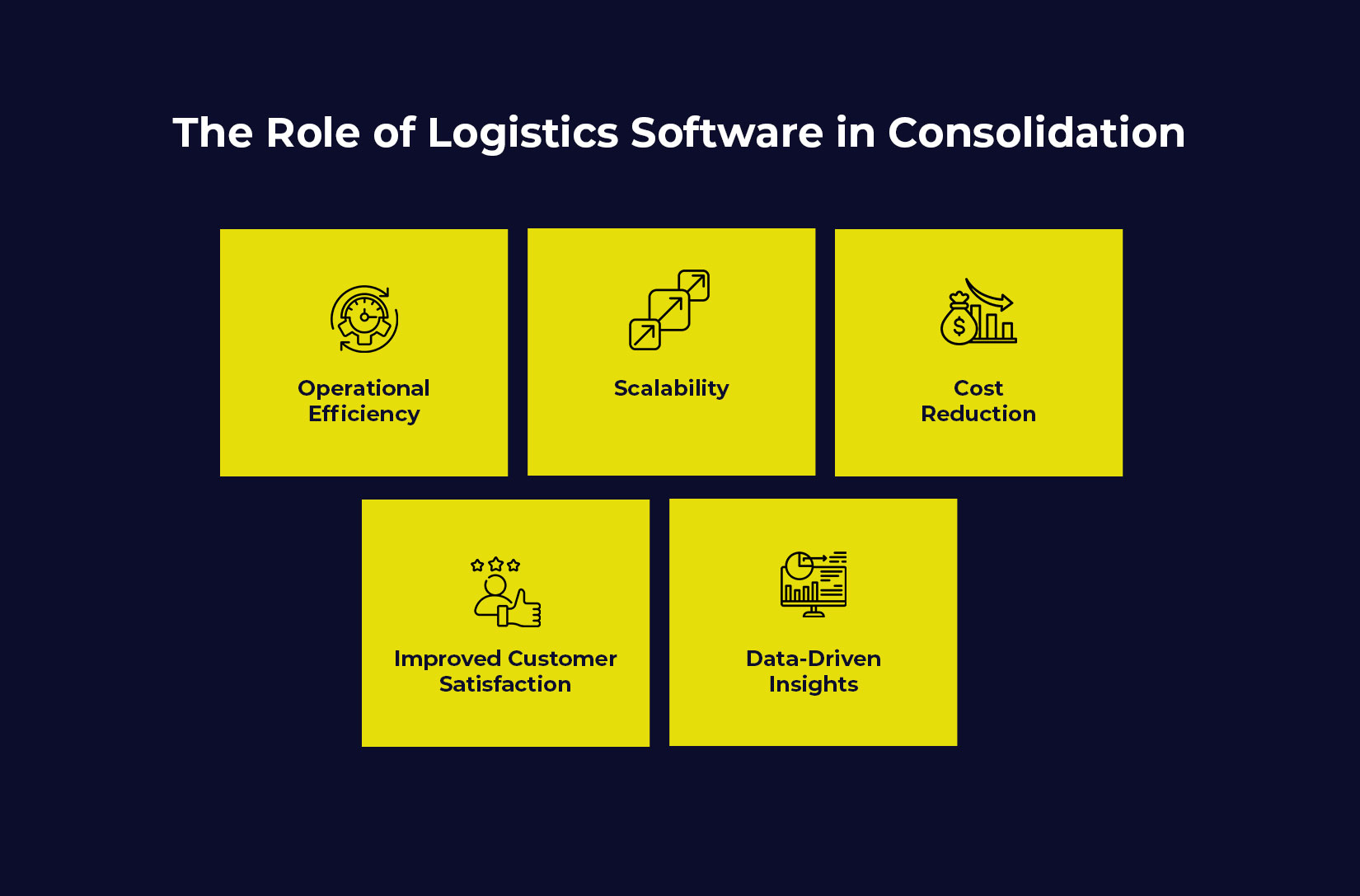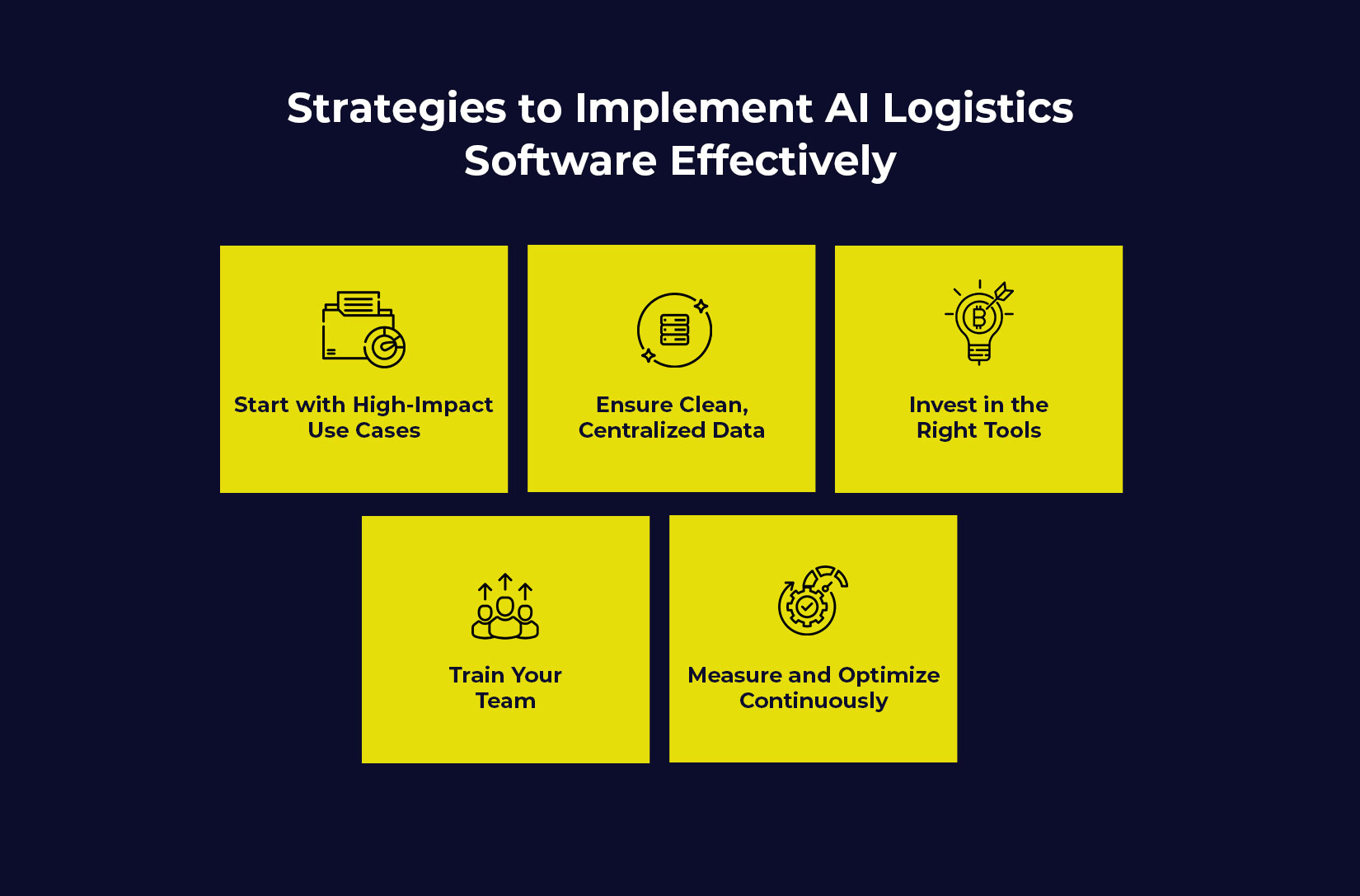
AI Logistics Software for Business Growth: Automation Strategies that Work
In the current era of rapid digitization, AI logistics software has emerged as a transformative force in supply chain management. As businesses strive to meet growing customer expectations and operate more efficiently, artificial intelligence (AI) is offering new strategies to automate, optimize, and scale logistics operations.
According to a report by McKinsey, AI-driven supply chain management can reduce forecasting errors by up to 50%. It can also cut logistics costs by 15%. With such compelling results, integrating AI logistics software for business is no longer optional. It’s essential for sustained growth and competitiveness.
What is AI Logistics Software?
AI logistics software refers to platforms that use artificial intelligence and machine learning to automate and enhance logistics processes. AI systems are designed to make real-time, data-driven decisions that boost efficiency across the logistics chain. These systems handle everything from demand forecasting and route optimization to inventory management and last-mile delivery.
These systems ingest vast amounts of data. Data like- location, traffic, delivery history, weather, and more. They continuously learn from them to improve operational outcomes.
Benefits of AI Logistics Software for Business

&nnbsp;
Adopting AI logistics software for business offers several measurable benefits that contribute directly to growth:
1. Operational Efficiency:
AI reduces human error and speeds up decision-making by automating routine tasks across the supply chain. Automated scheduling, dispatching, and routing minimize delays and maximize productivity. This allows logistics teams to shift their focus from manual coordination to strategic initiatives that drive growth and innovation.
2. Scalability:
As customer demand fluctuates seasonally or due to market shifts, AI enables logistics operations to scale up or down rapidly. It dynamically adjusts resource allocation, fleet size, and workforce requirements. This scalability is especially critical for businesses in fast-moving sectors like e-commerce, retail, and food delivery.
3. Cost Reduction:
By optimizing vehicle utilization, delivery routes, and inventory levels, AI significantly reduces operational expenses. Businesses implementing AI logistics systems often experience a 10-20% decrease in logistics costs through lower fuel consumption, fewer delays, and reduced waste.
4. Improved Customer Satisfaction:
AI provides real-time visibility into deliveries, ensures on-time arrivals, and enables faster issue resolution. This results in more accurate delivery windows, improved communication, and higher customer loyalty.
5. Data-Driven Insights:
AI continuously analyzes logistics data to generate actionable insights. These insights help businesses identify inefficiencies, forecast demand, improve service levels, and make proactive decisions based on trends, not guesswork.
Strategies to Implement AI Logistics Software Effectively

While the potential of AI is vast, successful implementation requires a structured approach. Here are proven strategies that work:
1. Start with High-Impact Use Cases:
Identify logistics challenges like last-mile inefficiencies or delivery delays. Focus on one or two high-impact areas first to build confidence, showcase results, and encourage broader AI adoption.
2. Ensure Clean, Centralized Data:
Consolidate data from ERP, WMS, TMS, and GPS systems into a unified platform. Clean, structured data enables AI to generate accurate insights, optimize operations, and reduce costly inefficiencies.
3. Invest in the Right Tools:
Select AI-powered logistics software that aligns with your industry and goals. Look for features like automated dispatching, real-time tracking, predictive analytics, and flexible API integrations for scalability.
4. Train Your Team:
Human oversight is essential. Train staff to understand AI outputs and integrate them into workflows. Ongoing education ensures effective use, drives adoption, and maximizes technology return on investment.
5. Measure and Optimize Continuously:
Track key metrics such as cost per mile, delivery accuracy, and warehouse cycle time. Use these insights to refine AI models, improve decision-making, and sustain long-term operational efficiency.
Use Cases Across Industries
AI logistics software is industry-agnostic. Here’s how different sectors are using it:
Retail & E-Commerce:
Optimizing same-day and next-day deliveries, managing high-volume returns, and forecasting seasonal demand spikes with greater precision. All of this is done to meet rising customer expectations and reduce delivery costs.
Healthcare:
Ensuring timely, compliant, and temperature-controlled delivery of pharmaceuticals, vaccines, and medical supplies. Doing this while minimizing risk and maintaining patient safety through real-time monitoring and predictive alerts.
Manufacturing:
Coordinating just-in-time delivery of raw materials, reducing inventory overhead, and optimizing the flow of components to production lines. This is done to prevent delays and boost operational efficiency.
In every case, the combination of speed, accuracy, and automation provided by AI logistics solutions has a measurable impact on business growth.
Choosing the Right AI Logistics System
When evaluating an AI logistics system, consider the following factors:
– Customization: Can it adapt to your specific workflows?
– Integration Capabilities: Does it connect with your existing software stack?
– Scalability: Will it grow with your business?
– Support and Updates: Is there an ongoing support, and does the provider invest in continuous improvement?
Some of the best AI powered logistics software providers offer cloud-based solutions with built-in analytics dashboards, mobile access, and automated alerts. Investing in such technology ensures you stay competitive in an increasingly intelligent supply chain landscape.
The Future of AI in Logistics
AI in logistics is still evolving. Emerging technologies like generative AI, autonomous delivery vehicles, and predictive digital twins are pushing boundaries even further. A Gartner study predicts that by 2027, over 75% of logistics organizations will adopt AI-driven decision intelligence.
As technology advances, businesses that adopt and scale AI logistics solutions early will enjoy a lasting advantage.
Conclusion
In a logistics landscape defined by complexity and speed, AI stands out as a powerful ally. By automating key functions, predicting demand, and enabling smarter decisions, AI logistics software can significantly boost business growth.
Whether you’re running a retail supply chain or managing a national fleet, investing in the best AI powered logistics software isn’t just about efficiency. It’s also a strategic move toward long-term success. So, the best decision would be to take the demo with LogiNext Solutions and get the best software. Click on the red button to know more.
79







@LogiNext